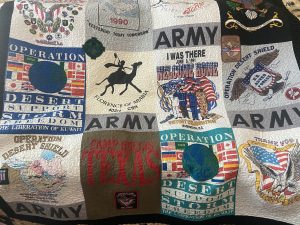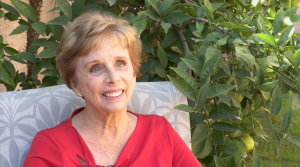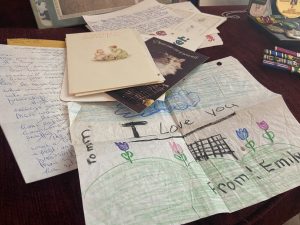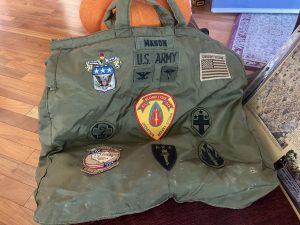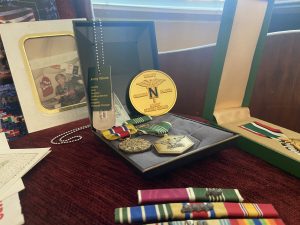- Slug: BC-CNS Veteran Grand Marshal
- 5 photos (thumbnails, captions below).
Alyssa Stoney
Cronkite News
PHOENIX – Christine Mahon remembers the heartache of leaving for war, including once when her youngest was 8.
During all her overseas deployments, including Operation Desert Storm in 1991, she kept the letters and drawings her children sent her.
Now, nearly 20 years after retiring from the Army Reserve as a colonel, still thinks about the hugs and tears when she returned home from the fighting.
“I regret not one minute from having done it,” Mahon said of her time in uniform.
Although leaving her family was difficult, she told Cronkite News she’s thankful for the chance to serve, and on this Veterans Day, she encourages others to do the same. She also wants America to honor military families.
“I think it’s an important day for the country to recognize the sacrifice individuals have made, but also the sacrifices that families make,” she said. “Veterans Day needs to be remembered for what people give.”
Mahon, who’s in the Arizona Veterans Hall of Fame, was a chief nurse in the Army Reserve for 33 years. She began her service in Phoenix in 1972 and ended her tour in San Diego in 2005.
Mahon is one of the grand marshals this year at the annual Phoenix Veterans Day Parade, hosted by Honoring America’s Veterans. The parade begins at 11 a.m. Thursday at Montebello Drive and Central Avenue and ends at Indian School Road.
Mahon was completing her nursing graduate degree in nursing at Arizona State University and working for a temporary nursing agency when a fellow nurse suggested the Army Reserve.
“And I thought, well sure, I could do that,” said Mahon, whose team was stationed in Saudi Arabia during Desert Storm, the U.S. response to Iraq’s invasion of Kuwait during the Gulf War.
“We were a 300-bed life-and-limb combat support hospital,” Mahon recalled. “We were located 10 miles from the Iraqi border and had one-third of the casualties from 7th Corps. We had everything from very minor injuries to very serious life threatening injuries.”
The reserve hospital was the only hospital in support of the 7th Corps during the war.
“Most of our patients were Iraqi prisoners of war, which was a challenge. We only had one person that spoke Arabic. They were very frightened of us. They were told we would do terrible things to them … but they were very appreciative of the care.”
Mahon was the chief nurse of the unit responsible for nursing service.
“I was the first nurse to command at an Army Reserve hospital in California, Nevada, Arizona, so that took a little challenge,” Mahon said, noting she learned “how to deal in a man’s world when women were not always accepted in leadership roles.”
Despite her hardships, she doesn’t regret it.
“I wish I could say ‘Thank you’ to that young nurse who gave me the guidance to do it.”
Mahon said it’s important to not forget the veterans who died in battle or came home from conflicts with physical and mental scars from their war experiences. Families of veterans also made sacrifices.
“One of the hardest things I had to do was leave my family. I had three young children at the time, my daughter, the youngest, was only 8 years old at the time, so that was very difficult. It’s very difficult on the families.”
For more stories from Cronkite News, visit cronkitenews.azpbs.org.
^__=
